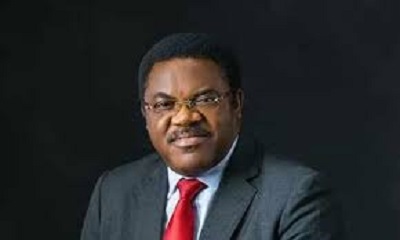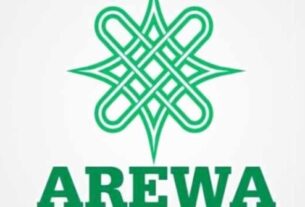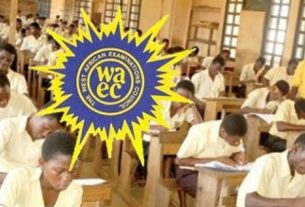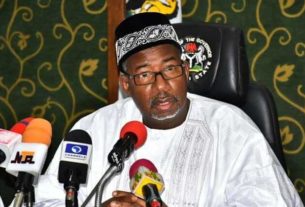Dele Adesina (SAN, Ll.M, Fci Arb.) makes the case for a new Nigerian constitution in article earlier published and republished by Inside Nigeria.
The Senate of the Federal Republic of Nigeria has set up a 56 Member Constitution Reviewing Committee under the leadership of the Deputy Senate President, Senator Ovie Omo-Agege, with a view to embarking on yet another round of Amendment of the Nigerian Constitution of the Federal Republic of Nigeria 1999 (as amended). The areas of focus according to publication on this subject matter include but are not limited to devolution of powers, state creation, the Nigerian Police and Nigerian Security Architecture, judicial reform, electoral reform, local government structure, public revenue, federal structure and fiscal federalism, revenue allocation, the socio-economic and cultural rights, immunity, indigene-ship and the National Assembly. The Committee has therefore called for memoranda and/or proposals for further alteration of the Nigerian Constitution from the civil society organizations, professional bodies, executive and judicial bodies, and the general public.
According to the Deputy Senate President, the process shall not only be all-inclusive but the Committee will guarantee full participation of Nigerians. The Report of the Constitution Reviewing Committee according to the publication is expected to be presented to the Senate at a plenary session in the first quarter of 2021. The Committee was inaugurated in February 12, 2020 by the President of the Senate, Senator Ahmad Lawan. As at the time of writing this essay, it has been reported that the Committee has not only received 68 memos on the proposed amendment, but also, that due to sustained pressure to extend the closing date of submission of memorandum, the Committee had extended the closing date for submission of memoranda to September 18, 2020.
Let me highlight two issues arising from the publications immediately. First, the clamour for extension of the closing date for submission of memorandum in spite of the huge number that have already been submitted is indicative of the enormous interest that the exercise will generate among Nigerians. Secondly, the expansive areas in focus as enumerated by the Committee suggest that the amendment is going to be far-reaching and will touch several sections of the Nigerian Constitution. The purpose of this write-up is to commend the Initiative of the Senate for finding it worthy to carry out what promises to be a sweeping re-examination, re-assessment and re-consideration of the 1999 Constitution. However, this is a restrained commendation in view of the observations, suggestions and recommendations I intend to make in this paper for the consideration of the Constitution Reviewing Committee, the Senate and indeed the general public.
First, it is to be recalled that we have successfully carried out 4 Amendments through 1st, 2nd, 3rd and 4th Alteration exercises. Several Sections of the Nigerian Constitution were altered in the course of the four (4) exercises, all these within approximately a period of 21 years of the existence and operation of the Constitution. The question is if we find it desirable to embark on another exercise as profound and expansive as the one being contemplated here, whether it is not far better and more desirable to think about a holistic replacement of the 1999 Constitution?
Second, I noted with satisfaction that some of the issues scheduled to be considered in the review exercise constitute fundamental and existential issues for Nigeria as a safe and secured Nation, as a Federation and lastly as a successful Constitutional Democracy. I am referring here to such items as devolution of powers, Federal Structure and true Federalism, the Nigeria Police and Nigerian Security Architecture, comprehensive Judicial Reform, Local Government autonomy and the National Assembly itself. Once these foundational issues are going to form the cornerstone of this review which has been promised to be all-inclusive and fully participatory, the question is whether it is not better and preferable to garner the thoughts, feelings, visions and aspirations of the people with the goal of embarking on the process of making a new Constitution for Nigeria?
Third, in the words of the Supreme Court: “the Constitution is the heart and soul of the people. That explains why the Constitution commences (with the word) ‘We the people…’ all provisions in the Constitution were put in by the accredited representatives of the people.” (See Ugba v. Suswam (2014) All FWLR [Pt. 748] page 825 at 863).
Disagreeing with the second part of the above quotation, my Learned Brother Silk and Constitutional Law expert, S.T. Hon, SAN, had this to say in his book titled ‘Constitutional Law and Migration Law’: “there is no doubt that the 1999 Constitution was enacted by the military. That the apex Court merely imputed this exercise to the Nigerian people.”
Many Nigerians including erudite Constitutional Law Lawyers have expressed serious reservation about the process leading to the making of the 1999 Constitution and the resultant lack of popular acceptability occasioned by the process of its making. For instance, Chief Rotimi Williams, SAN, a foremost Constitutional Law Lawyer described the 1999 Constitution as a “document that tells lie against itself.” Professor Itse Sagay, SAN, categorically described the Constitution as a “fraud.” The erudite Constitutional Law Lawyer and a foremost Professor of Law, Professor Ben Nwabueze, SAN, described the Constitution as an “illogicality”. That the 1999 Constitution is a “Unitary Constitution for a Federal System of Government.”
The Constitution was described as a fraud and a document that lies against itself at a Seminar on the new Constitution organised by the Nigerian Bar Association, Ikeja Branch, on the 18th of June, 1999 because the Nigerian Constitution purportedly stated in its opening recital that “We the people of the Federal Republic of Nigeria having firmly and solemnly resolved… do hereby make, enact and give to ourselves the following Constitution.” Since the enactment of the 1999 Constitution, the question has been asked repeatedly, where and when did that resolution take place? How did the people of the Federal Republic of Nigeria arrive at that firm and solid resolution purportedly expressed in the recital to the 1999 Constitution? It must be recalled that the 1999 Constitution of the Federal Republic of Nigeria was midwifed by the then Military Government of General Abdusallam Abubakar, GCFR, pursuant to the promulgation of the Constitution of the Federal Republic of Nigeria Decree No. 24 of 1999. The question is whether Decree No. 24 of 1999 can take the place of a referendum by the people in the making of a people’s Constitution recognising that the ultimate sovereignty lies with the people?
Fourth, in the case of Attorney-General of Abia State v. Attorney-General of the Federation, the Supreme Court stated the meaning and scope of Federalism in the following words: “Federalism as a legal concept generally connotes an association of states formed for certain common purposes, but the state retains a large measure of their original independence or autonomy. It is the co-ordinate relationship of power between the individual states and the National Government which is at the centre. Federalism as a viable concept of organising a pluralistic society such as Nigeria for governance does not encourage so much concentration of power in the centre which is the Federal Government. In federalism, the component states do not play the role of errand boys.” The point was also made by the Supreme Court in Attorney-General of Lagos State v. Attorney-General of the Federation, that each Government in a Federation “exists not as an appendage of another Government but as an autonomous entity in the sense of being able to exercise its own will in the conduct of its affairs, free from direction from another Government.” None of these essential characteristics of a true Federalism can be said to exist in Nigerian in real and practical terms.
I am fully persuaded by the opinion of Professor Ben Nwabueze, SAN, that “one single Constitution for all the governments involved both Federal and State in a Federation is a manifest contradiction.” For instance, in 1960, we had the Independence Constitution. There were separate Constitutions for both the Federation and the Regions as separate Schedules to the Independence Order-in-Council. Similarly, the 1963 Republican Constitution made provisions for the establishment of regional Constitutions for the three regions that composed the Federation. Section 5 (1) thereof stated as follows: “Subject to the provision of this Constitution (Federal Constitution) the Constitution of each region shall have the force of law throughout the region.”
There was also a specific provision in that Constitution which stated that the Executive Authority of a Region (which extended to the execution and maintenance of the Regional Constitution) shall be exercised so as not “to impede or prejudice the exercise of the Executive Authority of the Federation or endanger the continuance of the Federation.” It therefore follows that in an ideal Federal system, apart from sharing of powers, both the Federal and the Federating units must have their own Constitutions. The question is whether we truly want a Federal or a Unitary System of Government in Nigeria and whether an elaborate discussion on the desirability or otherwise of this initiative can be undertaken under an amendment process such as the one being contemplated?
Everyone in this Nation today accepts the fact that the Nation is faced with a lot of structural and systemic challenges, a good number of which are the products of the inadequacies of the 1999 Constitution. It is no longer news that there has been over concentration of powers at the centre at the detriment of the federating units. Indeed, over the years the centre has been grabbing and grabbing powers at the expense of the federating units. The long years of military adventure in governance has not helped the situation. For the sake of comparison, the 1954 Constitution donated 43 items to the centre in the Exclusive Legislative List, 45 items in the 1960 and 1963 Independence and Republican Constitutions, 66 items in the 1979 Constitution and 68 items to the centre in the 1999 Constitution as amended. The reality of our Constitutional structure and power sharing today is that simple items such as census, labour, trade unions and industrial relations, mines, minerals, natural gas, drugs, evidence, trade and commerce are in the Exclusive Legislative List. Not to talk of the Policing system. This is in addition to 30 items under the Concurrent Legislative List for which both the Federating States and the Federal Government have powers to make laws subject of course to the supremacy of the Federal Law over the State Law on any such matter where one is inconsistent with the other.
The issue of Nigeria Police and the security architecture in particular is very germane. It is not an over statement to say that the greatest challenge confronting our Nation today and particularly the security and sustenance of our Constitutional democracy is that of insecurity. I believe that nobody is left in any doubt that the centralized and monolithic Police structure established by Sections 214 and 215 of the Nigerian Constitution can no longer guarantee the security of this Nation and its component parts and this explains why the other security agencies like the Military, the Airforce and the Navy are now directly involved in the maintenance of law and order in different parts of the country.
The process of making the 1999 Constitution as stated earlier falls short of guaranteeing its popular legitimacy and acceptability. No amendments no matter how many times can in a retroactive manner cure this foundational defect in the making of the 1999 Constitution. It remains a military-donated Constitution. A deliberate effort to embark on the making of a new Nigerian Constitution will offer an opportunity to Nigerians for popular participation in the Constitution making process of their Country. Scholars of Constitutional Law have argued and I wholeheartedly agree with their reasoning that the scope of making a Constitution should not be determined by the rulers or those who govern them. Professor Julius Ihombere, talking about the value of participatory/ people driven Constitution making approach had this to say: “political elites and leaders have not come to fully appreciate the importance of a participatory or people driven Constitution making approach to their own survival in office and to the reduction of conflicts and pressures on the State, its institutions and custodians. Asides from using the process to resolve burning national issues, a participatory approach is probably one of the best panaceas to instability, public cynicisms and alienation from government. It is equally the best way to cultivate a culture and tradition of reliance on dialogue and consensus rather than the result to violence in the political process.”
The contemporary challenges being faced in the Nation today such as the wide spread insecurity, various sectional loyalty and allegiances instead of loyalty and commitment to the cause of the Nation on the basis of nationalism and patriotism, lack of properly focused political system cloaked in ideology and the uncountable number of political parties jostling for power, the agitation for true federalism, both fiscal and structural, make the call for a new Nigerian Constitution not only worthy of consideration but I submit makes it compelling. The Constitution of 1999 falls short in many aspects of what a Federal Constitution should be. It is my humble view that the time to take the bull by the horn and drive a wholesale replacement of the 1999 Constitution through the instrumentality of an autonomous and independent body is now. Such body must emanate from the people. Like I stated earlier the ultimate sovereignty lies with the people. It is my contention that we have gotten to a point in Nigeria when we should subject the Nation to the sovereign will of the people by making a people driven Constitution.
The materials for this exercise abound in Nigeria. These include men and women of good standing in their immediate society who can be elected from their constituencies to constitute a Constitution Drafting Committee to identify and collate the aggregate will and expressions of the people. The Report of the National Political Reform Conference of 2005 set-up by Chief Olusegun Obasanjo, GCFR, (which I was privileged to be a member), the Report of the Constitutional Conference of 2014 set-up by Dr. Goodluck Jonathan, GCFR, the 1979 and 1985 which heralded the 1999 Constitution midwifed by General Abdulsallam Abubakar, GCFR. The workings of the Constitutional Drafting Committee shall be submitted to a Constituent Assembly and the final product emanating from the Constituent Assembly shall be submitted for people’s referendum. Through this process, the people take ownership of the Nigerian Constitution.
I am not unaware of the argument that we cannot have two sovereigns in a nation in the sense of having a Sovereign National Conference as well as a Sovereign Government and Sovereign National Assembly. Going by the example we have seen in South Africa, I think both can coexist without one impeding or obstructing the workings of the other. Let it be recalled that the agitation and resistance against the Apartheid System of Government in South Africa was what led to the setting up of the Convention for Democratic South Africa (CODESA). At the time of formulating a new Constitution by the Convention for Democratic South Africa (CODESA), the Republican Constitution of South Africa 1961 was in place and a democratically elected government led by the National Party was also in place. History recorded that it was the Convention for Democratic South Africa that fashioned a new Constitution that ultimately removed discrimination and all forms of apartheid rule in South Africa. It is time for us to recognise that no problem is ever solved by technically avoiding the problem.
Besides, there has been no mentioning of a Sovereign National Conference at all in my consideration, advisedly, so as to address the fears of those opposed to a Sovereign National Conference coexisting with a Sovereign Government. It will be a great day for Nigeria if we can take this giant step to fashion out a new Constitution that will satisfy the yearnings, aspirations and inspirations of all Nigerians rather than embarking on limitless amendments. A Constitution that will enjoy a buy-in of all Nigerians. A Constitution that Nigerians can take ownership of by their participation in the process of its making. Somebody says that no matter how long you persist on a wrong route, you can never arrive at your desired destination. The time for us to take our destiny in our own hands is now. With all its noticeable inadequacies, the 1999 Constitution has tried to give us a Constitutional democracy albeit in a limited sense, we can have a full blown democracy and democratisation process run and administered by full democrats with a well-rounded Federal Constitution by its name and provisions.
Professor Julius Ihombere in his paper titled ‘Towards Participatory Mechanisms and Principles of Constitutional Making in Africa’ published in 2000 said: “rather than just seeing the Constitution as a power map focusing exclusively on the question of power (which is what we may achieve by the various Amendments) we must see the Constitution as an instrument for addressing pressing socio-economic, cultural and economic questions as well as an embodiment of consensus around constitutionalism.” The Nigerian Constitution must be seen and regarded as “an expression of the general will of the Nation, a reflection of its history, fears, concerns, aspirations, vision and indeed, the soul of the Nation. Furthermore, the Constitution is not just an elite affair rather it must be seen as a single document under which diverse and ideologically opposed people unite and rally in defence of democracy.”
A new Nigerian Constitution will translate: “We the people of the Federal Republic of Nigeria having firmly and solemnly resolved… do hereby make, enact and give to ourselves the following Constitution” from hypothesis into reality. May I conclude that if we must decisively address the inadequacies, distortions, confusions, fundamental omissions and the inherent contradictions in the 1999 Constitution of the Federal Republic of Nigeria, as amended, if we must establish a true and functional Federation that will guarantee National cohesion through the Rule of Law – our focus must be to give to ourselves a new Constitution. This is the truth, no matter how inconvenient.








